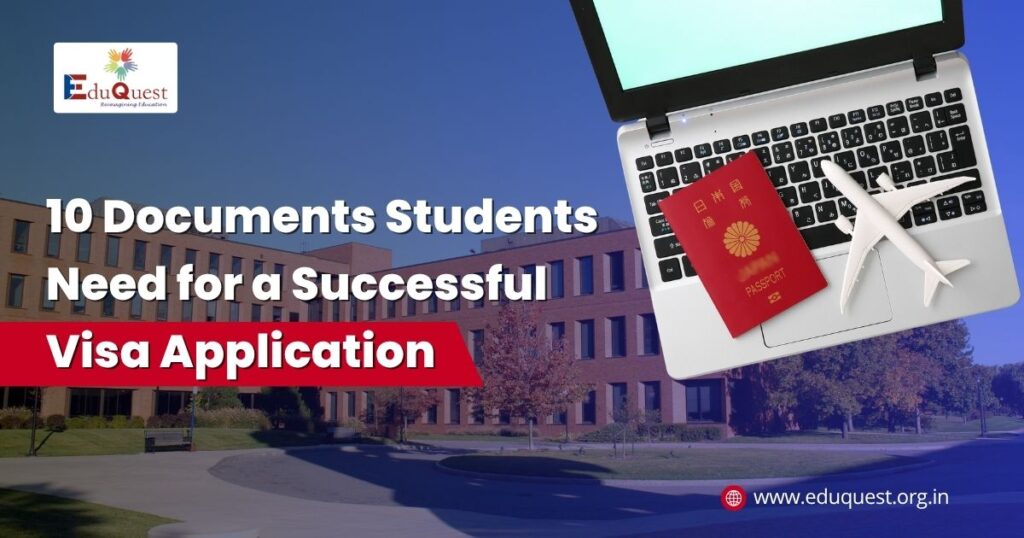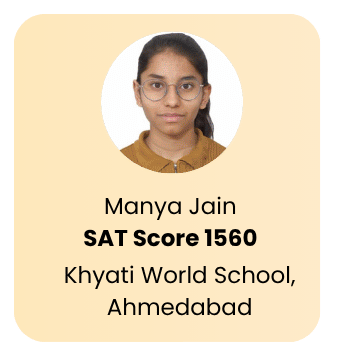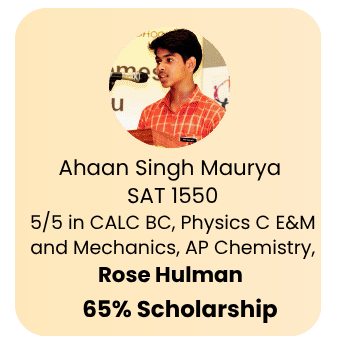Are you dreaming of studying abroad but feeling overwhelmed by the visa application process? You’re not alone. At EduQuest, we’ve guided countless Indian students through successful visa applications, and we know exactly what makes the difference between approval and rejection. Let’s dive into the essential documents you’ll need to secure your student visa.
Why Proper Documentation Matters
Picture this: You’ve secured admission to your dream university, but your visa gets rejected due to incomplete documentation. Heartbreaking, isn’t it? That’s why having the right documents, properly prepared and organized, is crucial. In fact, our experience shows that nearly 40% of visa rejections stem from documentation issues that could have been easily avoided.
Essential Documents for Your Student Visa Application
1. Valid Passport
Your passport is more than just a travel document – it’s your primary identity proof. Here’s what you need to know:
- Ensure at least 6 months validity beyond your intended stay
- Include copies of all previous visas and travel stamps
- Keep at least 2-3 blank pages for visa stamps
Pro Tip: If your passport is nearing expiration, renew it before starting your visa application. This simple step can save you from last-minute panic and potential delays.
2. University Acceptance Letter
This golden ticket proves you’ve been admitted to a legitimate educational institution. Make sure your acceptance letter includes:
- Official letterhead and signature
- Program details and duration
- Scholarship information (if applicable)
- Start and end dates of your course
Remember, some countries require additional documentation. For instance, U.S.-bound students need an I-20 form, while UK applicants need a CAS (Confirmation of Acceptance for Studies) statement.
3. Financial Documents
Money matters – and visa officers want proof that you can afford your education. Required documents typically include:
- Bank statements (usually for the last 6 months)
- Fixed deposit certificates
- Education loan approval letters
- Scholarship award letters
- Sponsor’s financial documents (if applicable)
Important: Different countries have different financial requirements. For example, Canada’s Student Direct Stream (SDS) program requires a Guaranteed Investment Certificate (GIC), while Germany needs a blocked account (Sperrkonto).
4. Academic Transcripts
Your academic history tells visa officers about your educational background. Include:
- High school certificates and marksheets
- Bachelor’s degree certificates (for postgraduate applications)
- Standardized test scores (SAT, ACT, GRE, GMAT)
- English proficiency test results (IELTS, TOEFL, PTE)
5. Statement of Purpose (SOP)
Your SOP isn’t just another document – it’s your chance to tell your story. A compelling SOP should explain:
- Why you chose this particular course
- Your career goals
- Reasons for selecting the country and institution
- Plans after completing your studies
EduQuest Insight: We’ve found that SOPs that connect personal experiences with future goals tend to be more successful in visa applications.
6. Proof of English Proficiency
Most English-speaking countries require proof of language skills. Common tests include:
- IELTS (preferred for UK, Canada, Australia)
- TOEFL (widely accepted in the USA)
- PTE Academic (gaining popularity globally)
- Duolingo English Test (increasingly accepted post-pandemic)
7. Medical Certificates
Health requirements vary by country, but common documents include:
- General medical fitness certificate
- Vaccination records
- COVID-19 vaccination certificate
- Tuberculosis (TB) test results (required for some countries)
8. Photographs
Seems simple, right? But specific requirements matter:
- Recent passport-sized photos (usually not older than 6 months)
- Correct dimensions as per country specifications
- Professional quality with proper background
- Multiple copies as required
9. Work Experience Documents (If Applicable)
If you have work experience, include:
- Experience letters
- Salary slips
- Tax returns
- Resignation acceptance letter
10. Additional Supporting Documents
These extra documents can strengthen your application:
- Travel insurance
- Accommodation proof
- Character certificates
- Police clearance certificates
- Reference letters
Common Mistakes to Avoid
Through our experience at EduQuest, we’ve identified several common documentation mistakes:
- Submitting outdated documents
- Inconsistent information across documents
- Missing translations for non-English documents
- Poor quality photocopies
- Incorrect photograph specifications
Country-Specific Requirements
Remember that requirements vary by destination:
USA (F-1 Visa):
- I-20 form
- SEVIS fee receipt
- DS-160 confirmation
UK (Student Visa):
- CAS statement
- TB test results (if applicable)
- ATAS certificate (for certain courses)
Canada (Study Permit):
- GIC proof (for SDS)
- Biometrics
- Medical exam results
Australia (Student Visa):
- GTE statement
- OSHC (health insurance)
- Biometrics
EduQuest’s Expert Tips for Success
- Start Early: Begin collecting documents at least 3-4 months before your planned application.
- Stay Organized: Create a document checklist and track your progress.
- Make Multiple Copies: Keep digital and physical copies of all documents.
- Verify Everything: Double-check all information for accuracy and consistency.
- Seek Professional Help: Consider working with experts like EduQuest to ensure your application is perfect.
Conclusion
A successful visa application isn’t just about having documents – it’s about having the right documents, properly prepared and presented. At EduQuest, we’ve helped thousands of students achieve their study abroad dreams through meticulous attention to documentation details.
Remember, every successful visa application starts with proper documentation. Don’t let paperwork stand between you and your dreams of studying abroad. Need help with your visa application? EduQuest’s expert counselors are here to guide you every step of the way.
Frequently Asked Question
How long does it take to gather all required documents?
Typically, 2-3 months, depending on document availability and processing times.
Do all documents need to be originals?
Most countries accept certified copies, but some documents may need to be original.
What if I can't provide a specific document?
Contact the embassy or consulate for alternatives. Sometimes, additional documentation can substitute for missing items.
How recent should financial documents be?
Usually not older than 3-6 months, depending on the country’s requirements.
Can EduQuest help with document verification?
Yes, our expert counselors provide comprehensive document review and verification services.













